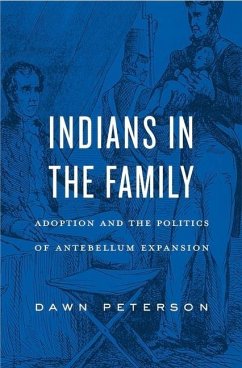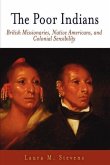In 1813, Andrew Jackson invaded the Creek Indian Nation and, in the aftermath, sent a Creek boy home to his plantation household. Jackson's eventual adoption of this child opens a window into a forgotten story of adoption in the early nineteenth century.By tracking the political, familial, and economic commitments of nearly a dozen white adopters, adopted Indian children, and their American Indian parents, Indians in the Family reveals how a subset of white and Southeast Indian elites used race, slavery, and kinship to both impose and resist U.S. imperial rule. By the early 1800s, a small group of Southeast Indian elites saw white slaveholders' interest in incorporating Native children into plantation homes as particularly useful. After being educated in elite U.S. spaces, adopted Indian men used their intimate knowledge of U.S. imperial governance to effectively thwart state and federal claims to their Native homelands, setting the stage for the political struggles that would culminate in the Indian Removal Act of 1830.--








